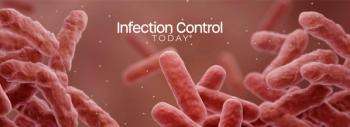
Quick Hit: A Conversation With Anthony Fauci, MD: What Challenges Face Infection Preventionists in the Coming Year
Anthony Fauci, MD, always has a lot on his plate. The internationally known immunologist who first broke into the limelight with his groundbreaking work on HIV/AIDS in the 1980s is today the head of the National Institute of Allergy and Infectious Diseases. Still, Fauci was recently able to pause long enough to talk to Infection Control Todayabout 2019’s progress and 2020’s challenges.
Infection Control Today:What would you consider to be the most urgent threat for infection preventionists heading into 2020?
Fauci:The issue of anti-vaxx remains one of the most serious threats for measles, influenza, and a number of other threats.
ICT:CDC Director Robert R. Redfield, MD, called for the ending of HIV infection by 2030 and you laid out that plan in February in
Fauci:Our plan to end the HIV epidemic in the US by 2030 represents an important commitment from the highest levels of government and certainly can be considered as a watershed moment in infection control in 2019.
ICT:What role should infection preventionists play in antibiotic stewardship programs in healthcare facilities?
Fauci:Antibiotic stewardship is critical to thwart the development and spread of antibiotic resistant microbes. Infections preventionists should be proactive in endorsing and adhering to antibiotic stewardship.
ICT: This year, the CDC added Candida auris and carbapenem-resistant Acinetobacterto its
Fauci: Given the growing problem of [antimicrobial resistance], I am certain that there will be others added to the list over the coming years; however, it is difficult to predict right now which these will be.
ICT: You’ve been an internationally renowned fighter of deadly infections for decades. What is your take on the current state of hand hygiene?
Fauci: Hand hygiene is a critical part of infection control and it should be more strongly enforced and monitored.
ICT: What can we do to better encourage compliance with hand hygiene?
Fauci: Explanation of its importance and enforcement by hospital officials.
ICT: Any ideas about how environmental service teams can function better to prevent infection in a healthcare system?
Fauci: Closer cooperation and coordination between environmental service teams and hospital epidemiologists and infection control teams.
Newsletter
Stay prepared and protected with Infection Control Today's newsletter, delivering essential updates, best practices, and expert insights for infection preventionists.




